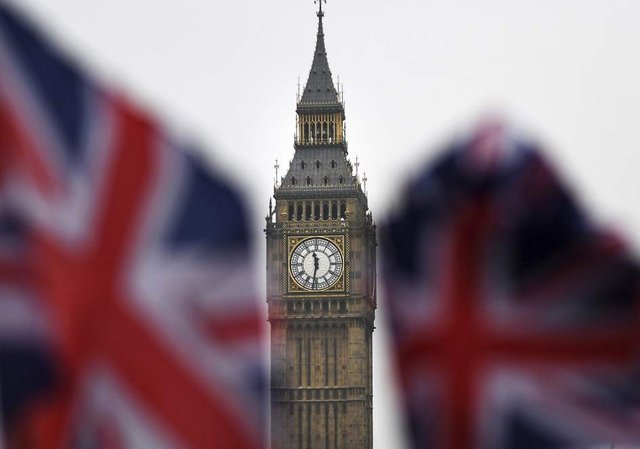
The British Government presented today the general budget prepared for Northern Ireland for 2017-2018 in view of the political paralysis suffered by the province, whose Executive Power shared between Protestants and Catholics has been suspended since last January.
With this decision, which will be incorporated into the British legislation in the Westmisnter Parliament at the end of the week, London takes the reins of the economy of autonomy, although it warns that it does not assume the "direct government" of the region.
The British Prime Minister, the conservative Theresa May, and its head for Northern Ireland, James Brokenshire, argue that it is an "intermediate solution", aimed at avoiding the indefinite suspension of autonomy and direct control of London.
Brokenshire believes that the Northern Ireland parties can still reach a pact of governability before the end of the year, but insisted today that he has been forced to intervene in the accounts of the region because his coffers are running out of money, in the absence of an autonomous Executive capable of making economic decisions for almost eleven months.
The British Government reported today that the new budget has increased by 3.2% compared to last year, although when applying inflation the money destined for Northern Ireland is kept more or less in the same amount, which will be managed, of moment, by the civil service of the region.
The new accounts for 2017-2018 do not include the additional 1,000 million pounds (1,125 million euros) pledged by May last June, when he signed a governance agreement with the Democratic Unionist Party (DUP), majority among the Protestant community in Northern Ireland.
The "premier" needed the support of the ten unionist deputies, after losing the absolute majority in the British general elections of June 8.
According to the nationalist Sinn Féin, the main party among Northern Irish Catholics, this relationship between DUP and "Tories" has emboldened the unionists and prevents them from yielding to key issues for the restoration of the autonomous Executive.
Sinn Féin leader in Northern Ireland, Michelle O'Neill, today called on London and Dublin to become more involved in the negotiating efforts and force the DUP to take on some of its proposals.
Both parties maintain differences on the issue of the Gaelic language, since the nationalists want a specific law to be drafted to protect it, while the DUP prefers to include this issue in a more general cultural legislation, which also contemplates aspects related to the unionist identity.
The ultraconservative DUP also refuses to legalize homosexual marriage and the two disagree about the legacy of the past conflict and the mechanisms to assist the victims and investigate the crimes committed by both the paramilitaries and the security forces during that period.
The Executive of Belfast fell last January when the historical leader of the Sinn Féin Martin McGuinness, now deceased, resigned from his post as deputy of the exministra principal and leader of the DUP, Arlene Foster, for a case of corruption in the policy of renewable energies detected in the previous legislature.
The British government was forced to call elections in March, but the parties have not been able to bring their positions closer since then.
I have been flagging your posts because you're just stealing them from different news websites
Downvoting a post can decrease pending rewards and make it less visible. Common reasons:
Submit
The lack of leadership in Northern Ireland is impacting the Health Service. Waiting Lists at an all time high. Top Civil Servants are now running the show which is pathetic.
Downvoting a post can decrease pending rewards and make it less visible. Common reasons:
Submit
super post
Downvoting a post can decrease pending rewards and make it less visible. Common reasons:
Submit
It's not his post. He stole it from here:
http://www.chicagotribune.com/sns-bc-eu--northern-ireland-20171101-story.html
Downvoting a post can decrease pending rewards and make it less visible. Common reasons:
Submit